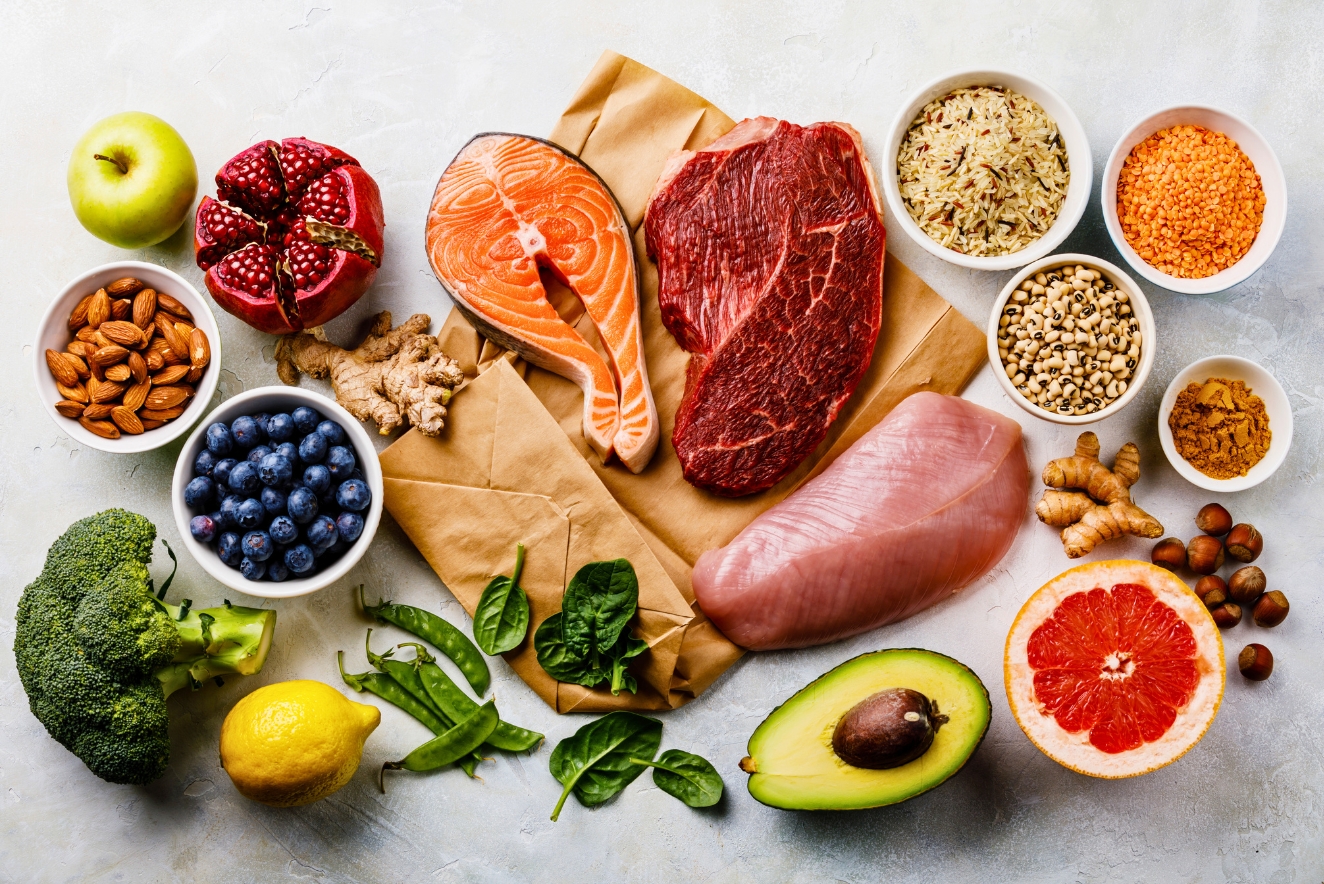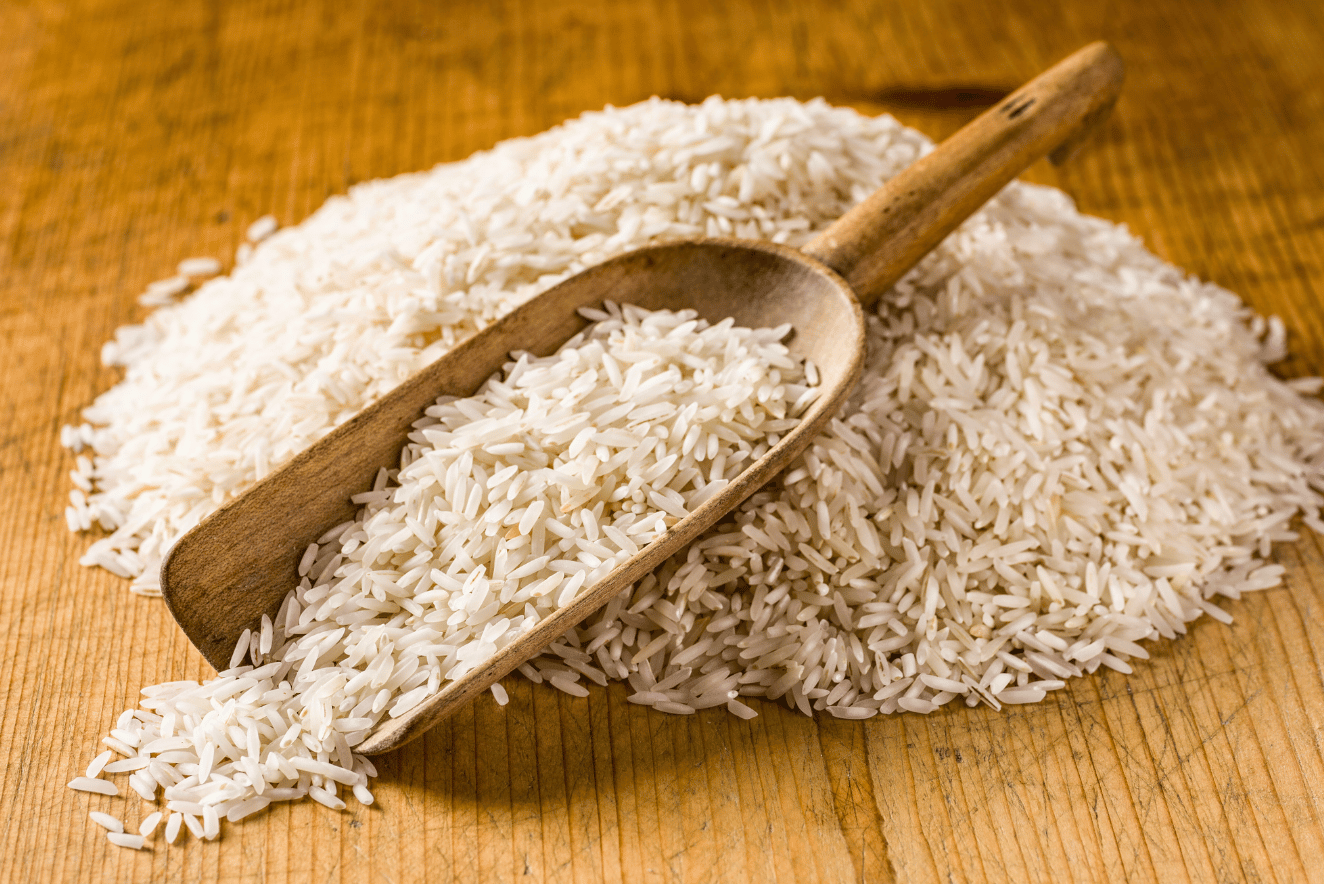Hey there, health warriors and curious minds! Ever caught yourself staring at your plate, wondering if you’ve cracked the code to perfect nutrition? Well, you’re not alone! We’ve been wondering the same, especially since the talk about “macros” is so trendy amongst the fit community. Let’s dive into the subject and learn together.
Welcome to your ultimate guide to macronutrients and micronutrients – the building blocks of a healthy diet.
Picture this: your body is like a finely-tuned sports car. Macronutrients? They’re the fuel that keeps your engine roaring. Micronutrients? Think of them as the oil that keeps every part running smoothly. Without the right balance, you might find yourself sputtering instead of zooming through life!
Here’s a mind-boggling fact for you: despite living in an age of abundance, a whopping 92% of Americans are deficient in at least one vitamin or mineral. Yikes! But don’t worry – I’ve got your back. By the time we’re done here, you’ll be a nutrient mastermind, ready to craft meals that not only tantalize your taste buds but also nourish every cell in your body.
So, are you ready to demystify the world of nutrients and become the architect of your own health? Let’s roll up our sleeves and dig into the delicious world of macros and micros. Trust me, it’s going to be a tasty adventure!
Macronutrients 101: The Big Three
Alright, let’s start with the heavy hitters – macronutrients. These are the nutrients your body needs in large amounts to keep you running like a well-oiled machine. We’re talking about carbohydrates, proteins, and fats. Let’s break them down!
Carbohydrates: Your Body’s Favorite Fuel
Carbs often get a bad rap, but let me tell you, they’re not the villain they’re made out to be! Here’s the scoop:
- Simple vs. Complex Carbohydrates: Simple carbs are like a quick spark – they give you instant energy but burn out fast. Think sugar and white bread. Complex carbs? They’re the slow-burning logs that keep your fire going. Whole grains, vegetables, and legumes are your go-to here.
- Fiber: The Unsung Hero: this type of carbohydrate is your gut’s best friend. It keeps things moving, if you know what I mean! Aim for 25-30 grams a day.
- Glycemic Index: This is like a carb’s speedometer. Low GI foods (like oatmeal) release energy slowly, while high GI foods (like white rice) cause rapid spikes in blood sugar.
- Healthy Carb Sources: Load up on quinoa, sweet potatoes, berries, and leafy greens. Your body will thank you!
Proteins: The Building Blocks of Life
Proteins are like the construction workers of your body, constantly repairing and building new tissues. Here’s what you need to know:
- Essential Amino Acids: These are the Lego blocks of proteins. Your body can’t make them, so you need to get them from food.
- Complete vs. Incomplete Proteins: Complete proteins (like eggs and meat) have all essential amino acids. Incomplete proteins (like beans) need to be combined to get all the amino acids.
- Protein Requirements: The average person needs about 0.8 grams per kilogram of body weight. But if you’re hitting the gym hard, you might need more!
- Protein Sources: It’s not all about meat! Try lentils, Greek yogurt, tofu, or a handful of almonds for a protein punch.
Fats: Not the Enemy You Think They Are
Fat has been demonized for years, but guess what? Your body needs it! Here’s the skinny on fats:
- Types of Fats: Saturated, unsaturated, and trans fats. Trans fats are the troublemakers – avoid them like the plague!
- Omega-3 and Omega-6: These fatty acids are crucial for brain health and reducing inflammation. Fatty fish, flaxseeds, and walnuts are great sources.
- Fats and Hormones: Fats are essential for producing hormones. Without enough fat, your endocrine system might go haywire!
- Healthy Fat Sources: Avocados, olive oil, nuts, and seeds should be your fat friends. They’re like a spa day for your cells!
Micronutrients: Small but Mighty
Now, let’s zoom in on the tiny titans – micronutrients. These are the vitamins and minerals your body needs in smaller amounts, but trust me, they pack a punch!
Vitamins: organic compounds essential for various bodily functions
Minerals: inorganic elements crucial for everything from bone health to immune function
Vitamins are like the pit crew for your body’s race car. Each one has a crucial role:
- Fat-Soluble vs. Water-Soluble: Fat-soluble vitamins (A, D, E, K) can be stored in your body. Water-soluble vitamins (B and C) need regular replenishing.
- Vitamin Functions:
- Vitamin D: The sunshine vitamin, crucial for bone health and mood.
- Vitamin C: Your immune system’s best friend.
- B Vitamins: Energy producers and mood boosters.
- Deficiency Signs: Feeling tired all the time? Catching every cold? You might be low on vitamins!
- Vitamin-rich foods: Eat the rainbow! Colorful fruits and veggies are vitamin goldmines.
Think of micronutrients as the backstage crew of your body’s performance. You might not see them front and center, but without them, the show simply can’t go on!
Finding the Balance: Your Personalized Nutrition Plan
Here’s where things get exciting – and a bit personal. Everyone’s nutritional needs are different. It’s like trying to find the perfect playlist – what works for your gym buddy might not hit the right note for you.
Assessing Your Current Diet
- Food Diary: Start by tracking what you eat for a week. You might be surprised!
- Nutrition Apps: Tools like MyFitnessPal can be eye-opening for seeing your nutrient intake.
- Watch for Signs: Constant fatigue, brittle nails, or dull skin might be nutritional red flags.
Identifying Your Goals
- Weight Management: It’s not just about calories – nutrient density is key.
- Muscle Gain: Up that protein and complex carb intake!
- Life Stage Nutrition: Pregnant? Senior? Your nutritional needs change with life stages.
Considering Your Lifestyle
- Desk Job vs. Active Profession: Your calorie and nutrient needs vary based on activity level.
- Shift Work: Timing your meals becomes crucial when your schedule is topsy-turvy.
- Busy Bees: Meal prep and nutrient-dense snacks are your best friends.
I remember when I first started paying attention to my nutrition. I thought I was doing great with my daily salads, but I was constantly tired. Turns out, I wasn’t getting enough iron! A few tweaks to my diet, and boom – I felt like a new person. The lesson? Balance is key, folks!
Superfoods: Nutrient Density Champions
Let’s talk about the overachievers of the food world – superfoods! These nutritional powerhouses are packed with a variety of macro and micronutrients.
What Makes a Superfood? High nutrient density, low calories, and packed with health benefits.
Top Superfoods:
-
- Berries: Blueberries, goji berries – antioxidant powerhouses!
- Leafy Greens: Kale, spinach – more nutrients than you can shake a stick at.
- Nuts and Seeds: Almonds, chia seeds – protein, healthy fats, and minerals galore.
- Fatty Fish: Salmon, mackerel – hello, omega-3s!
It’s very easy to incorporate superfoods in your diet: just add berries to your morning oatmeal, snack on nuts, or throw some spinach in your smoothie.
Incorporating these into your diet is like giving your body a nutrient-dense high five. But remember, no single food is a magic bullet. It’s all about variety and balance!
Meal Planning for Optimal Nutrition
Let’s get practical – how do you actually get all the required macronutrients and micronutrients in your daily diet?
- Balanced Meal Principles: Aim for a mix of complex carbs, lean proteins, healthy fats, and plenty of veggies at each meal.
- Meal Prep Strategies:
- Batch cook grains and proteins on weekends.
- Pre-cut veggies for easy snacking and cooking.
- Portion out snacks in advance to avoid overeating.
- Sample Meal Plans:
- For Weight Loss: Focus on high-volume, low-calorie foods like vegetables and lean proteins.
- For Muscle Gain: Up the protein and complex carbs, with plenty of nutrient-dense foods to support recovery.
- For Busy Professionals: Quick breakfast smoothies, packed lunches, and simple dinner recipes.
- Reading Nutrition Labels: Look beyond calories – check the ingredient list, fiber content, and added sugars.
Want to learn more about meal planning? Check out our Ultimate Guide forThe Ultimate Guide to Meal Planning in 2024: Eat Smart & Save Meal Planning
Nutrition and Overall Health
Nutrition isn’t just about your waistline – it affects every aspect of your health!
- The Gut-Brain Connection: Your diet can influence your mood and mental health. Probiotics and fermented foods are your gut’s (and brain’s) best friends.
- Nutrition and Mental Health: Omega-3s, B vitamins, and magnesium are crucial for brain health. Eating a Mediterranean-style diet has been linked to lower rates of depression.
- Immune System Support: Vitamins C and D, zinc, and antioxidants are your immune system’s armor. Load up on citrus fruits, bell peppers, and mushrooms.
- Skin and Hair Health: Biotin, vitamins A and E, and omega-3s keep your skin glowing and hair shining. Salmon, avocados, and nuts are beauty foods!
Supplements: When to Bridge the Gap
Sometimes, despite our best efforts, we might need a little extra help. That’s where supplements come in.
Always consult with a healthcare professional who can help you:
- Identify potential deficiencies
- Choose high-quality supplements
Sometimes, even with the best diet, we need a little extra help. Studies show that most modern diets are deficient in: Vitamin D, B12, iron, and magnesium.
When Might You Need Supplements?
-
- Vegetarians/vegans (B12, iron)
- People with limited sun exposure (Vitamin D)
- Women of childbearing age (folate)
- Seniors (Vitamin B12, Vitamin D)
When choosing quality supplements: Look for third-party testing and certifications. More expensive doesn’t always mean better!
Supplement Safety
More isn’t always better. Some nutrients can be harmful in high doses. The best course of action when it comes to supplement is working with professionals: always consult with a healthcare provider before starting a supplement regimen.
Special Dietary Considerations
One size doesn’t fit all in nutrition, even when it comes to macronutrients and micronutrients. Let’s look at some special dietary approaches:
- Vegetarian and Vegan Nutrition: Focus on combining plant proteins, and consider B12 supplements. Iron and zinc might need extra attention too.
- Gluten-Free Diets: Not just for celiac disease. If you go gluten-free, ensure you’re getting enough fiber and B vitamins.
- Ketogenic and Low-Carb Approaches: High in fats, moderate in protein, low in carbs. Great for some, but not for everyone. Monitor your micronutrient intake carefully.
- Intermittent Fasting: It’s not just about when you eat, but what you eat. Make sure your eating windows are packed with nutrient-dense foods.
But here’s the kicker – supplements should supplement, not replace, a healthy diet. They’re like the backup singers to your nutritional rock star performance!
And there you have it, friends– your crash course in macronutrients and micronutrients! Remember, achieving balanced nutrition isn’t about perfection; it’s about progress. Start small, make gradual changes, and listen to your body. It’s pretty smart, you know!
Ready to take your nutrition game to the next level? Start by doing a quick audit of your current diet. Are you hitting all the macro and micro marks? Don’t be discouraged if you’re not – we’re all on this journey together. The important thing is that you’re here, learning and growing.
So, what’s your next step towards nutritional balance? Maybe it’s adding more colorful veggies to your plate, or finally giving that intimidating kale a chance. Whatever it is, I’m rooting for you! Here’s to your health, your happiness, and your newfound nutrient knowledge.
Now go forth and nourish that amazing body of yours!





